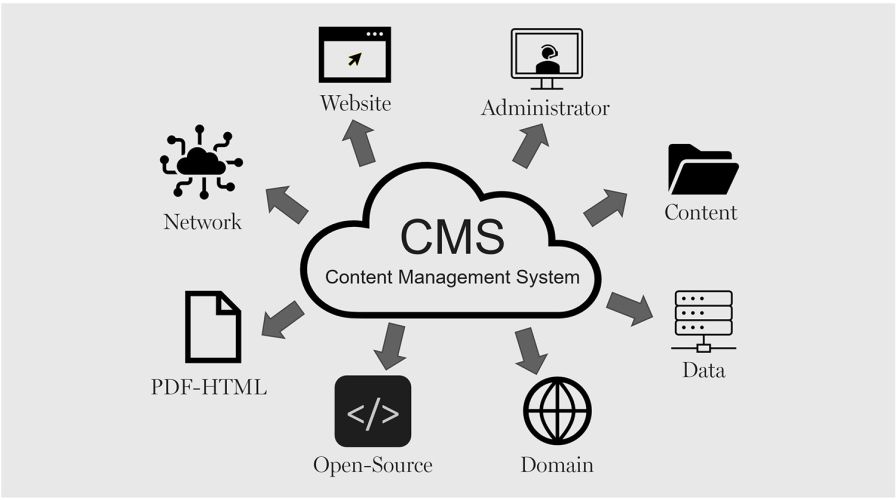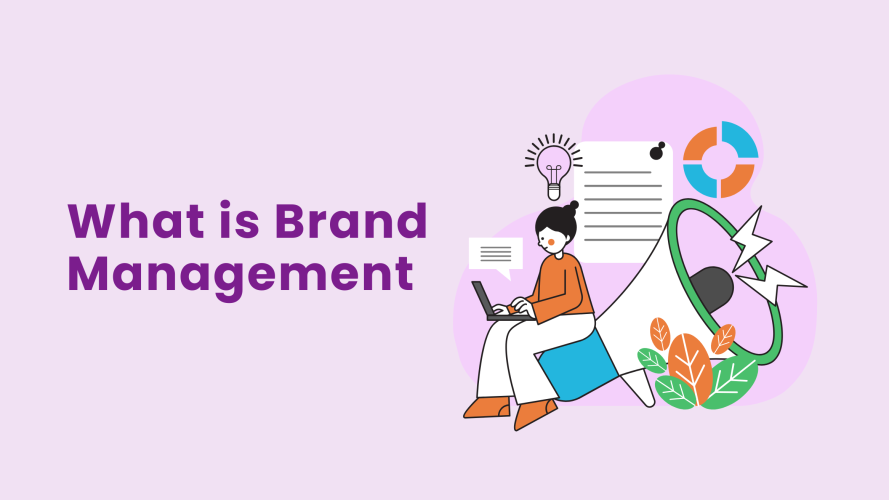INTRODUCTION
The oft-repeated phrase “education is the best investment you can make” isn’t just a tired cliché; it’s a resounding truth with far-reaching implications. While the initial costs – tuition, fees, and time – can feel daunting, viewing them solely as expenses overlooks the transformative power of knowledge. In reality, education is an investment in a flourishing future, not just individual gain.


The Mosaic of Diaspora Education: A Journey Through Time and Space
The history of education in diaspora communities is a vibrant mosaic, shimmering with diverse experiences, resilience, and adaptation. It’s a journey across continents and centuries, echoing with the struggles and triumphs of those navigating displacement, identity, and the pursuit of knowledge. Let’s embark on this journey, exploring the different chapters of this compelling narrative:
Early Diasporas and Traditional Pedagogies:
- Oral traditions: Long before formal schooling, knowledge and cultural heritage were transmitted through storytelling, music, and rituals. This ensured continuity and resilience in the face of displacement.
- Apprenticeships and community-based learning: Practical skills and cultural values were taught through hands-on training and close-knit community networks.
Colonialism and Educational Imposition:
- Assimilationist models: Colonial powers often imposed their own languages, curricula, and values, aiming to erase cultural identities and create loyal subjects.
- Resistance and alternative education: Diasporic communities developed clandestine schools and cultural spaces to preserve their languages, traditions, and self-determination.
The Fight for Educational Access and Equity:
- Civil rights movements: Throughout history, communities in diaspora have fought for equal access to quality education, challenging segregation and systemic inequalities.
- Rise of supplementary schools: In response to inadequate education or cultural disconnect, supplementary schools emerged, offering language, cultural, and religious instruction to connect with their heritage.
Navigating Hybrid Identities and Educational Landscapes:
- Transnational education: With globalized societies, diasporic communities connect with educational opportunities in ancestral homelands, fostering complex transnational identities and knowledge exchanges.
- Multicultural education: The growing recognition of cultural diversity within schools has led to curriculum adjustments and pedagogical approaches that acknowledge and celebrate diasporic experiences.
Challenges and Opportunities in the 21st Century:
- Language barriers and marginalized voices: Ensuring cultural and linguistic inclusion in mainstream education remains a challenge, requiring equitable resource allocation and culturally responsive pedagogy.
- Acknowledging colonial legacies and their impact: Integrating the history and contributions of diasporic communities into mainstream curricula can create a more inclusive and truthful educational landscape.
- Leveraging technology for global connections: Online platforms and communication tools offer immense opportunities for diasporic communities to connect, share knowledge, and collaborate across borders.
The history of education in diaspora is far from a singular narrative; it’s a symphony of resistance, adaptation, and innovation. As we move forward, it’s crucial to recognize the ongoing struggles for educational equity and inclusion. By listening to the diverse voices within this mosaic, honoring their narratives, and integrating their rich experiences into mainstream education, we can create a future where diaspora communities fully flourish and contribute to a more vibrant and equitable world.
Education: Exploring Its Importance, Advantages, and Potential Disadvantages
What is Education?
Education, in its broadest sense, encompasses the process of acquiring knowledge, skills, values, and attitudes. It empowers individuals to understand the world around them, think critically, make informed decisions, and contribute meaningfully to society. Education comes in various forms, from formal schooling and university degrees to informal learning through experience, travel, and community engagement.
The Importance of Education:
- Individual benefits:
- Enhanced employability and earning potential: Education equips individuals with the skills and knowledge needed to secure better jobs and advance their careers.
- Improved health and well-being: Studies show that education can lead to better health outcomes, lower mortality rates, and increased civic engagement.
- Personal development and self-discovery: Education fosters critical thinking, creativity, and problem-solving skills, enabling individuals to navigate life’s challenges and pursue their passions.
- Societal benefits:
- Economic growth and development: Educated populations contribute to a skilled workforce, innovation, and economic prosperity.
- Reduced crime and social cohesion: Education is linked to lower crime rates, increased social mobility, and stronger communities.
- Enhanced democracy and citizenship: Education promotes critical thinking, active participation in civic life, and responsible decision-making.
Potential Disadvantages of Education:
- Cost and accessibility: Access to quality education is not universal, creating inequalities and perpetuating cycles of poverty. High costs and limited resources can restrict educational opportunities for certain groups.
- Stress and pressure: Competitive educational environments can lead to anxiety, stress, and burnout, impacting mental and physical health. The pressure to excel can stifle creativity and individuality.
- Indoctrination and bias: Education systems can be susceptible to biases and ideological agendas, potentially limiting perspectives and critical thinking. It’s crucial to ensure a diversity of viewpoints and encourage independent thought.
Pros and Cons of Education:
Pros:
- Increased knowledge and skills: Education expands your knowledge base and equips you with valuable skills applicable in various aspects of life.
- Personal growth and development: Education fosters critical thinking, problem-solving, and communication skills, enhancing your ability to navigate life’s challenges and pursue personal goals.
- Economic opportunities: Education increases your employability and earning potential, opening doors to better career options and financial security.
- Civic engagement and social responsibility: Education promotes critical thinking and active participation in society, enabling you to contribute meaningfully to your community and advocate for positive change.
Cons:
- Financial burden: Tuition fees, living expenses, and student loans can create significant financial stress and debt.
- Stress and pressure: Competitive environments and high expectations can lead to anxiety, burnout, and decreased motivation.
- Limited creativity and individuality: Standardized testing and rigid curricula can stifle creativity and encourage rote learning over independent thought.
- Potential for indoctrination: Education systems can be susceptible to biases and ideological agendas, limiting exposure to diverse perspectives and independent thinking.
It’s important to remember that education is not a monolithic entity with simple pros and cons. Its impact depends on various factors, including the quality of the education, the individual’s learning style and goals, and the broader societal context. The challenge lies in maximizing the benefits of education while mitigating its potential drawbacks.
By acknowledging both the importance and limitations of education, we can strive to create more equitable and accessible educational systems that nurture critical thinking, creativity, and well-being for all learners. Remember, education is a lifelong journey, not a destination. Embrace the opportunities it offers while critically reflecting on its limitations, and never stop learning and growing throughout your life.
The foundational history of African education is rich and complex, predating colonialism and encompassing diverse traditions across the continent. Here’s a glimpse into its multifaceted heritage:
Formal and Informal Learning:
- Informal education: Played a dominant role, with knowledge transmitted through storytelling, proverbs, apprenticeship, and community rituals. Elders, artisans, and community leaders served as teachers, imparting skills, values, and cultural knowledge.
- Formal education: Existed in kingdoms like Mali, where Islamic schools flourished, and Ethiopia, with its ancient Geez script and schools of Holy Scriptures.
Emphasis on Practical Skills:
- Education centered on equipping individuals with the skills needed for their roles within society. Farming techniques, crafts, social etiquette, and survival skills were emphasized, ensuring the community’s well-being.
- Rote learning wasn’t the focus; understanding and practical application were prioritized.
Ubuntu: Interconnectedness and Community:
- The concept of Ubuntu, emphasizing interconnectedness and communal responsibility, permeated education. Cooperation, empathy, and respect for elders were central values.
- Education aimed to create responsible citizens who contributed to the collective good.
Diversity of Traditions:
- Across Africa, different communities developed unique educational practices. For example, the Dogon people of Mali used mnemonic devices like masks and dances to transmit complex knowledge about astronomy and cosmology.
- Each tradition reflected the specific needs and cultural context of the community.
Impact of Colonialism:
- Colonialism disrupted traditional education systems, imposing Western models that marginalized indigenous knowledge and languages.
- The focus shifted towards rote learning and preparing Africans for colonial roles, often neglecting their cultural heritage and self-determination.
Post-Colonial Developments:
- African nations have strived to revive and reinterpret traditional educational practices while incorporating modern tools and knowledge.
- The focus is on creating culturally relevant and holistic education systems that empower individuals to contribute to their communities and nations.
It’s important to remember that the foundational history of African education is not monolithically negative or positive. It’s a tapestry woven with both rich traditions and colonial disruptions. Today, the focus lies on building an education system that honors the past, adapts to the present, and paves the way for a vibrant future for African learners.
Why Education is an Investment
Education is often considered an investment, and for good reason! It comes with a return on investment (ROI) that goes beyond just financial gains. Let’s explore why education is such a valuable investment:
Individual benefits:
- Increased earning potential: Studies show that education, on average, leads to higher salaries and lifetime earnings. The more education you have, the more likely you are to secure well-paying jobs and advance in your career.
- Improved health and well-being: Educated individuals tend to have better health outcomes, lower mortality rates, and healthier lifestyles. Education can equip you with the knowledge and skills to make informed choices about your health and well-being.
- Enhanced problem-solving and critical thinking: Education fosters critical thinking, analytical skills, and problem-solving abilities. These skills are valuable in all aspects of life, from making everyday decisions to navigating complex challenges.
- Personal growth and development: Education fosters curiosity, creativity, and lifelong learning. It pushes you beyond your comfort zone and helps you develop valuable personal skills like communication, collaboration, and self-reflection.
- Greater civic engagement and social mobility: Education empowers individuals to be active and responsible citizens. It promotes critical thinking about social issues and encourages participation in civic life.
Societal benefits:
- Economic growth and development: An educated workforce is crucial for a nation’s economic prosperity. Education boosts innovation, entrepreneurship, and productivity, leading to economic growth and development.
- Reduced crime and social cohesion: Educated individuals are less likely to be involved in criminal activity. Education can contribute to lower crime rates, stronger communities, and greater social cohesion.
- Enhanced democracy and good governance: Education promotes critical thinking, active participation in civic life, and responsible decision-making. This is essential for a healthy democracy and good governance.
- Sustainable development: Education plays a crucial role in addressing global challenges like poverty, environmental degradation, and climate change. It empowers individuals to make informed choices and contribute to a more sustainable future.
Of course, there are also some points to consider:
- Not all types of education have the same ROI: The value of an education can vary depending on the type of degree, field of study, and quality of education received.
- Education is not the only factor influencing success: Individual skills, talent, hard work, and external factors like economic conditions also play a role in success.
- The cost of education can be a barrier: Access to quality education remains a challenge for many, creating inequalities and potentially impacting the overall ROI for certain groups.
Despite these challenges, the overall benefits of education as an investment remain undeniable. By investing in education, we invest in our individual and collective well-being, paving the way for a brighter future for all.
Remember, education is not just about acquiring knowledge and skills; it’s about empowering individuals and creating a better world. And that, in itself, is a worthwhile investment.sharemore_vert
Let’s explore why education is an investment in a flourishing future
Financial Dividends:
- Earning Potential: Studies consistently show a positive correlation between educational attainment and lifetime earnings. Higher education translates to significantly higher income on average, not only offsetting the initial costs but generating a sustained return throughout your career.
- Enhanced Employability: In today’s dynamic job market, specialized skills and knowledge are crucial. Education equips you with the qualifications employers seek, making you more employable and adaptable. The ability to solve problems creatively, communicate effectively, and navigate complex tasks are just a few assets education provides, boosting your competitiveness and job security.
- Increased Productivity: An educated workforce simply delivers more. Individuals with higher levels of education tend to exhibit better analytical thinking, problem-solving skills, and critical judgment. This translates to improved efficiency, better decision-making, and ultimately, greater economic growth and societal well-being.
Beyond the Balance Sheet:
- Fueling Innovation and Entrepreneurship: Education ignites creativity, critical thinking, and problem-solving – the very fuel for innovation. It empowers individuals to identify challenges, develop solutions, and drive groundbreaking ideas. This fosters a vibrant ecosystem of entrepreneurship, leading to economic growth and new opportunities for all.
- Fostering Global Citizens: Education transcends borders, equipping individuals to understand diverse cultures, navigate complex global issues, and engage in cross-cultural collaboration. This fosters empathy, tolerance, and respect, paving the way for a more peaceful and interconnected world.
- Strengthening Democracy: An educated citizenry is an empowered one. Education promotes critical thinking, active participation in the democratic process, and holding leaders accountable. This safeguards fundamental rights, fosters transparency, and strengthens the pillars of a thriving society.
Investing in Well-being:
- Improved Health Outcomes: Education, particularly in health and hygiene, empowers individuals to make informed choices about their well-being. This leads to higher life expectancy, reduced healthcare costs, and improved overall quality of life. The ripple effect of a healthy, educated population extends beyond individual benefits, contributing to a stronger and more resilient society.
- Protecting the Environment: Education empowers us to understand the delicate balance of our planet and the impact of human actions. It promotes sustainable practices, responsible consumption, and environmental consciousness. This fosters a sense of stewardship and equips communities to address the critical challenges of climate change and resource depletion.
- Unleashing Lifelong Learning: Education ignites a love of learning that extends beyond formal schooling. It instills curiosity, critical thinking skills, and the ability to adapt to new situations. This empowers individuals to continuously learn and grow throughout their lives, enriching their personal and professional journeys.
While the financial investment in education is undeniable, it pales in comparison to the bountiful harvest it yields. Investing in education isn’t just about personal advancement; it’s about cultivating a future where innovation thrives, communities flourish, and humanity progresses towards a brighter tomorrow. By nurturing the seed of education, we sow the seeds of a flourishing future for ourselves, our communities, and generations to come.
Beyond Investment: Unleashing the Symphony of Human Potential
Forget seeds, gardens, and dreamcatchers. Education transcends mere metaphors, however beautiful. It’s not a static object to cultivate, tend, or capture. It’s a symphony waiting to be played, a vibrant orchestra where every individual holds an instrument, their unique talents poised to harmonize into a breathtaking melody of human potential.
Beyond skills and knowledge, education awakens:
- The Maestro’s Baton: Education ignites passion and creativity, empowering individuals to conduct their own journeys of innovation and artistic expression. Imagine engineers composing symphonies of sustainable solutions, programmers crafting ballets of code, and doctors weaving tapestries of healing with each innovative technique.
- The Unifying Harmony: Education fosters empathy and understanding, transforming classrooms into melting pots of cultures and experiences. Imagine diverse voices blending seamlessly, prejudices dissolving into curiosity, and a chorus of global unity rising above all cultural walls.
- The Conductor’s Score: Education equips individuals with critical thinking, informed decision-making, and the courage to hold leaders accountable. Imagine societies where education has orchestrated a symphony of responsible leaders, guided by informed voices, paving the way for a future of justice and transparency.
The music education inspires echoes far beyond individual success:
- The Lifelong Concerto: Education fuels a love of learning that transcends grades and classrooms, transforming individuals into lifelong musicians, continually evolving and enriching the collective melody. Imagine generations learning, adapting, and contributing to a dynamic world, their instruments eternally tuned to the rhythm of discovery.
- The Earth’s Lullaby: Education awakens environmental awareness and inspires responsible action, transforming individuals into harmonious musicians with nature. Imagine communities humming with sustainable practices, cherishing biodiversity, and composing a collective lullaby for a thriving planet.
- The Inner Symphony: Education nurtures emotional intelligence and resilience, equipping individuals to navigate life’s challenges with grace and strength. Imagine a society where education has woven a symphony of mental well-being, fostering empathy, connection, and the ability to harmonize even amidst life’s discords.
Investing in education is not just buying an instrument; it’s joining the orchestra, contributing your unique melody to the grand symphony of human potential. By picking up our instruments, practicing with dedication, and playing in unison, we create a harmony so powerful it can transform the world. Let us be the maestros of our own journeys, the bridge builders between cultures, the voices echoing for justice, and together, compose the most magnificent symphony of human progress ever conceived.
Unleashing the Symphony of Human Potential
This unified piece resonates with the potential of education to unlock human potential and orchestrate a brighter future for all. Remember, education is not a solo performance; it’s the grand crescendo of our collective potential. Let us pick up our instruments, tune our hearts, and together, unleash the Symphony of Human Potential. https://www.customerengagementinsider.com
Education before self-employed vs being educated and not getting employed
The choice between pursuing education before becoming self-employed and entering the workforce without further education involves weighing several factors, each with its own advantages and disadvantages. Here’s a breakdown to help you navigate this decision:
Education before self-employment:

Advantages:
- Skill development: Formal education can equip you with specific skills and knowledge relevant to your chosen field, making you more competitive and confident as a self-employed individual.
- Networking opportunities: University or postgraduate programs can expose you to potential collaborators, clients, and mentors, building a valuable network for your future business.
- Time for planning and preparation: While still in education, you can dedicate time to market research, business plan development, and financial projections, setting yourself up for success before launching your venture.
- Credibility and certifications: Certain professions might require specific degrees or certifications for legal practice or client acquisition, making formal education mandatory.
Disadvantages:
- Cost and time investment: Pursuing further education can be expensive and time-consuming, delaying your entry into the workforce and incurring potential debt.
- Theoretical vs. practical knowledge: Some educational programs might not adequately translate into real-world business experience, requiring additional learning and adaptation.
- Reduced flexibility: Being a student often comes with a stricter schedule and less immediate control over your time, which could limit your ability to pursue entrepreneurial opportunities as they arise.
Entering the workforce without further education:
Advantages:
- Early income and experience: Gaining real-world work experience can provide valuable skills, financial security, and a clear understanding of the industry you wish to enter as a self-employed individual.
- Testing the waters: Working for someone else before starting your own business can offer insights into industry practices, potential pitfalls, and customer needs, informing your entrepreneurial roadmap.
- Potential for career advancement: Performing well in a corporate setting might lead to promotions, salary increases, and valuable training opportunities, benefiting your future business venture.
- Reduced financial burden: Avoiding additional educational costs can be advantageous, especially if you can use your work income to save for your future business or further education if needed.
Disadvantages:
- Skills gap: Lacking specific qualifications might limit your initial business opportunities and require additional independent learning to bridge the gap.
- Less network and connections: Building a professional network can be more challenging outside of academic settings, potentially hindering access to resources and support.
- Time constraints: Balancing a full-time job with business planning and preparation can be demanding, making it difficult to dedicate sufficient time and energy to your entrepreneurial vision.
- Loss of momentum: Delaying your self-employment journey might sap your initial motivation and make it harder to regain focus later.
Ultimately, the decision depends on your individual circumstances, aspirations, and risk tolerance. Consider your:
- Financial resources: Can you afford further education without incurring significant debt?
- Skillset and knowledge: Do you already possess the necessary skills for your chosen business, or would formal education be crucial?
- Learning style: Do you thrive in structured academic settings or prefer learning through experience?
- Timeline: How soon do you want to launch your self-employed venture?
Remember, there’s no “one size fits all” answer. Some individuals might benefit from additional education, while others can thrive by entering the workforce and gaining practical experience first. The key is to carefully assess your options, research your chosen field, and make an informed decision based on your specific goals and circumstances.
Educated Illiterate vs. Literate but Uneducated: A Comparative Table
| Feature | Educated Illiterate | Literate but Uneducated |
|---|---|---|
| Formal Education | Extensive formal education beyond reading and writing | Limited or no formal education beyond basic literacy |
| Knowledge Acquisition | Strong theoretical and specialized knowledge gained through formal education | Practical knowledge and skills gained through life experiences |
| Critical Thinking & Analysis | Developed critical thinking and analytical skills due to academic training | May have limited critical thinking skills due to lack of exposure to diverse perspectives |
| Problem-Solving | Trained in structured problem-solving approaches | Relies on experiential and intuitive problem-solving methods |
| Communication Skills | Well-articulated and nuanced communication due to exposure to different writing styles | May struggle with formal communication due to limited exposure |
| Information Consumption | Ability to evaluate and interpret complex information | May rely on informal or inaccurate sources of information |
| Adaptability & Learning | Strong adaptability and capacity for lifelong learning due to acquired skills | May have difficulty adapting to new situations or acquiring new skills |
| Career Opportunities | Access to broader career opportunities requiring specialized knowledge | May be limited to career paths requiring practical skills or on-the-job training |
| Social Mobility | Higher potential for social mobility due to educational qualifications | May face challenges in upward mobility due to limited knowledge and skills |




